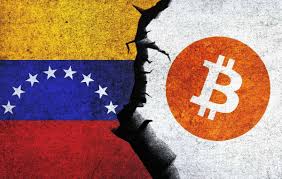On January 15, the Petro (PTR), the cryptocurrency of Venezuela, is scheduled to stop trading.With the intention of assisting the nation in avoiding US sanctions, the Petro was unpopular from the beginning and was never widely adopted.On a government-run website devoted to the cryptocurrency, the official notification of Petro’s closure is purported to have been published, yet as of this writing, the website is unavailable.The administration component of the Venezuelan Patria website, which was reportedly the sole venue for Petro trading, is now only accessible through a password.
Due to pressure from US sanctions, Venezuela’s fiat currency, the bolivar, saw severe devaluation. As a result, the Petro cryptocurrency was first introduced as an oil-backed digital money.The action was taken after Bitcoin had become well-known throughout the nation.
President Nicolas Maduro of Venezuela ordered the Petro to be issued, but the legislature objected.Even after reaching complete operation in 2020, the Petro was not well-received abroad.The Bolivarian Alliance for the Peoples of Our America’s ten member states were encouraged to adopt it, although the Maduro administration did not succeed in getting it widely accepted.Acceptance of the Petro was not required because it was never deemed legal tender domestically.
Remarkably, Banco de Venezuela, the biggest bank in the nation, refused to take Petro unless required to do so by a presidential decree.When U.S. Immigration and Customs Enforcement posted a $5 million reward in June 2020 for the arrest of Joselit Ramirez Camacho, the head of the National Superintendency of Crypto Assets, who was in charge of managing the Petro, the matter took a more serious turn.He was charged with being involved in the trafficking of illegal drugs abroad.In March 2023, Ramirez Camacho was apprehended in Venezuela on suspicion of financial irregularities in the country’s oil sector.
As a result, the organization he oversaw was closed for reorganization and subsequently had its closure prolonged until March 2024.Numerous cryptocurrency exchanges and mining companies across the nation were forced to close as a result of this crackdown.Despite the Central Bank of Venezuela’s statement of plans to launch a central bank digital currency (CBDC) in 2021, it is important to remember that the Petro was not one.Sadly, those intentions were never carried out, making the Petro a botched attempt to overcome Venezuela’s economic difficulties.Following an investigation into a corruption scheme in which cryptocurrency wallets were used to divert money owed to the state-run oil giant Petróleos de Venezuela, state regulators in March of last year ordered an end to cryptocurrency mining.


